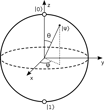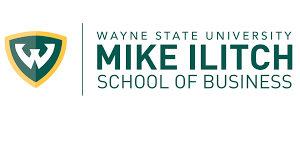An Introduction to Quantum Computing
"We are analog beings living in a digital world, facing a quantum future."
-- Neil Turok
Quantum Computing
Many times experts fail because they are experts in the past version of the world.
The future of quantum computing is incredibly exciting. With its potential for near-instantaneous computation and processing power, quantum computing could revolutionize the way we interact with data and could have a major impact on virtually every industry. Quantum computers are already being used in chemistry, material science, pharmaceuticals, robotics and finance. In the coming years, they are expected to become even more widely used as the hardware and software advances. The possible applications for quantum computing seem almost limitless – from solving complex problems to predicting weather more accurately than ever before.
Table of Contents
- What is a Quantum Computer (10:32)
- Companies, countries battle to develop quantum computers | 60 Minutes (13:14)
- Osprey: The World Largest Quantum Computer (14:01)
- Quantum Computers Explained With Quantum Physics (9:58)
- Expert Explains One Concept in 5 Levels of Difficulty (19:27)
- An Introduction to Quantum Computing (28:43)
- Terminology
- Are You Ready for the Quantum Leap? https://iveybusinessjournal.com/are-you-ready-for-the-quantum-leap/
- Ask an MIT Professor: Dr. Will Oliver Discusses the Past, Present, and Future of Quantum Computing:
https://curve.mit.edu/mit-professor-will-oliver-past-present-future-quantum-computing - Deloitte Predicts Accelerated Quantum Adoption in 2023: https://www.quantumbusinessnews.com/applications/deloitte-predicts-accelerated-quantum-adoption-in-2023
- The Quantum Leap: https://quantumtech.blog/home/
- It takes a (quantum) village: https://medium.com/qubits-pieces/it-takes-a-quantum-village-9362b990e7fa
Google's Marissa Giustina addresses some basic questions about quantum computing. You’ll learn about what makes a quantum computer “quantum”, and what differentiates it from a classical computer. In addition, you’ll get to see what Google’s current quantum processors look like, and see the stack of hardware infrastructure needed to run the full system.
- What does it mean for hardware to be quantum?
- What differentiates quantum hardware?
- What does a quantum computer look like?
- How do we build it?
Explore the possibilities of quantum at Google: https://quantumai.google/
The Osprey chip, developed and built by IBM Quantum, is the largest Quantum Computer made to date. We sit down with Jerry Chow, Director of IBM Quantum hardware, to ask him how the team went about developing Osprey, what challenges had to be overcame to do so, and the future of quantum technology.
"Quantum computers aren’t the next generation of supercomputers—they’re something else entirely. Before we can even begin to talk about their potential applications, we need to understand the fundamental physics that drives the theory of quantum computing."
- Amplitudes
- Qubits
- Interference
- Algorithms
- After a Quantum Clobbering, One Approach Survives Unscathed:
https://www.quantamagazine.org/after-a-classical-clobbering-a-quantum-advantage-remains-20221207/ - https://www.youtube.com/watch?v=jHoEjvuPoB8
IBM's Dr. Talia Gershon (Senior Manager, Quantum Research) explains quantum computing to 5 different people; a child, a teen, a college student, a graduate student, and a professional.
- Superposition: idea that it is in a state of 0 or 1
- Entanglement: items are connected
- Interference: destructive / constructive
- Machine Learning
- Decoherence
An Introduction to Quantum Computing (28:43)
William Oliver, Associate Professor of EECS, Professor of the Practice of Physics, Lincoln Laboratory Fellow, and Associate Director of the RLE at MIT, presents Introduction to Quantum Computing.
- What is a quantum computer?
- When will we have a quantum computer?
- What applications will we have?
- How to connect items together?
- What is a Bloch Sphere?
Quantum computers represent a new computing paradigm. Go back and look at the computing development timeline of over 100 years to gain insights. Quantum computing is transitioning from scientific curiosity to technical reality.
Terminology
- Bloch Sphere: a geometrical representation of a qubit

- Bloch Sphere Playground
- Qubit: the quantum version of the classic binary bit
- Qubit Bias: degree to which a variable tends to a particular outcome
- Qubit Coupling Strength: degree to which two variables agree
- Bell State:
- CNOT Gate:
- Entanglement:
- Hadamard Gate:
- Ising Model:
- Superposition: any two quantum states that can be added together ("superposed") and the result will be another valid quantum state
- Minimum Vertex Cover
- NISQ: Noisy Intermediate-Scale Quantum
- NP (Nondeterministic Polynomial Time)
- Adiabatic quantum computation:
- QAOA: Quantum Approximate Optimization Algorithm
- QUBO: Quadratic Unconstrained Binary Optimization
- Quantum Annealing:
- Quantum Anomaly:
- Quantum Information Science:
- Quantum Supremacy:
- Quantum Technology:
- Quantum Tunnelling:
- Quantum Void (aka Quantum Vacuum State)
- Quantum Volume:
